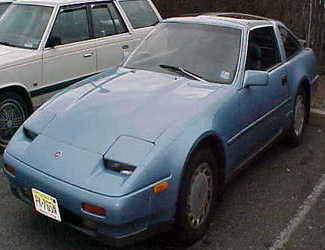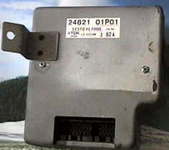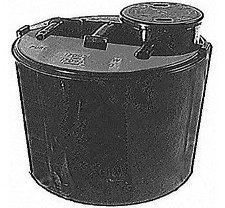Why 300ZX Fails Emission Test

The mighty 300ZX failed the emission test the last year I owned it. I was getting ready to sell her and decided to run it through the state inspection early so that prospective buyers could see that she just passed the state inspection. I thought this would be a good selling point.
At the time I was living in the state of New Jersey which has very strict testing that causes vehicle owners to suffer great anxiety when their automobile is due for inspection. The state workers always seem to find something to fail you on, and therefore proving that their job is a necessary evil.
But when it came to my 1988 300ZX (Christine we called her) it always sailed through the yearly inspection. For one thing, the emissions standards that the vehicle had to live up to where the older 1988 specifications. In 1988 some vehicle manufacturers were actually still installing carburetors on new vehicles. This prevented the federal government from stiffening the standards until all vehicles went with fuel injection the next year.
The 3.0 L V-6 Nissan engine not only had fuel injection but it had a computerized system that was ahead of its time or at least on the cutting edge back in 1988. If the 300ZX fails an emissions test it means that something is wrong. But “Christine” ran beautifully with no signs of smoke and absolutely no roughness at idle. To be honest I thought maybe the states equipment needed a calibration. I took the vehicle into a friends shop and sure enough the vehicle did have high HC (hydrocarbons).
Why did the 300ZX Fail Emissions
This is just my opinion but when a car does fail inspection for HC the most common cause for high output of hydrocarbons is an engine misfire. This did not apply to the Z. Hydrocarbons or high HC is usually caused by unburnt fuel or raw gas making its way into the exhaust system.

High HC can also be caused from a rich mixture but this would usually apply to a carburetor vehicle where you can make adjustments to the air fuel mixture. On a fuel injected vehicle this is calculated by the computer which controls how long the fuel injector stays open.
My 1988 300ZX was running rich, but there was no screw that I could turn in to lean out the mixture. This actually did take me a while to figure out and I’ll have to spare you all of the little details and all of the different things that I checked and skip right to the meat and potatoes of what the problem was.
How Did I Solve the 300ZX Problems

What really led me to solving the problem was grabbing the 300ZX repair manual and completely reading through the fuel management section. I got to the section that described the vapor canister and purge valve system. I thought this was an emission related system that was worth checking into.
The canister is quite different than the one that is deployed on modern-day vehicles. And when you get down to it, a two position control valve controls the burning of the fuel vapor at the proper time. The valve was stuck in the open position and venting fuel vapors to the intake at engine idle.
The computer can usually compensate for this condition but in this case the canister had raw gas in it. This was due to a stuck fuel check valve. I never heard of anyone else with a 300zx have this problem. The solution was replacing the canister and control valve assembly that I bought new through the Nissan dealer.
300ZX Crankcase Emission Control System
In case you’re wondering how fuel vapor is handled on the 300ZX models I will provide a short description to follow. The fuel vapor from the sealed fuel tank is led into the canister which contains activated carbon. The vapors are stored there when the engine is not running. There should be no raw fuel present, it is a vapor canister. There is a liquid check mounted near the tank to prevent this.
The canister retains the fuel vapor until it is purged by the air drawn through the purge line to the intake manifold when the engine is running. When the engine is at idle the purge control valve is in the closed position. As the engine speed increases and the throttle vacuum rises higher, then the purge control valve opens and the vapor is drawn into the intake manifold through the purge orifice.
I did love my 300ZX and it eventually did sell for the full asking price. The brand-new state inspection sticker did seem to help the buyer feel better about paying top dollar for the car. If you are interested in seeing the other work my 300ZX required this next link takes you back to the 300ZX auto repairs section. If you’re interested in seeing the latest articles posted to this blog this next link will take you to the auto repair information blog homepage.

